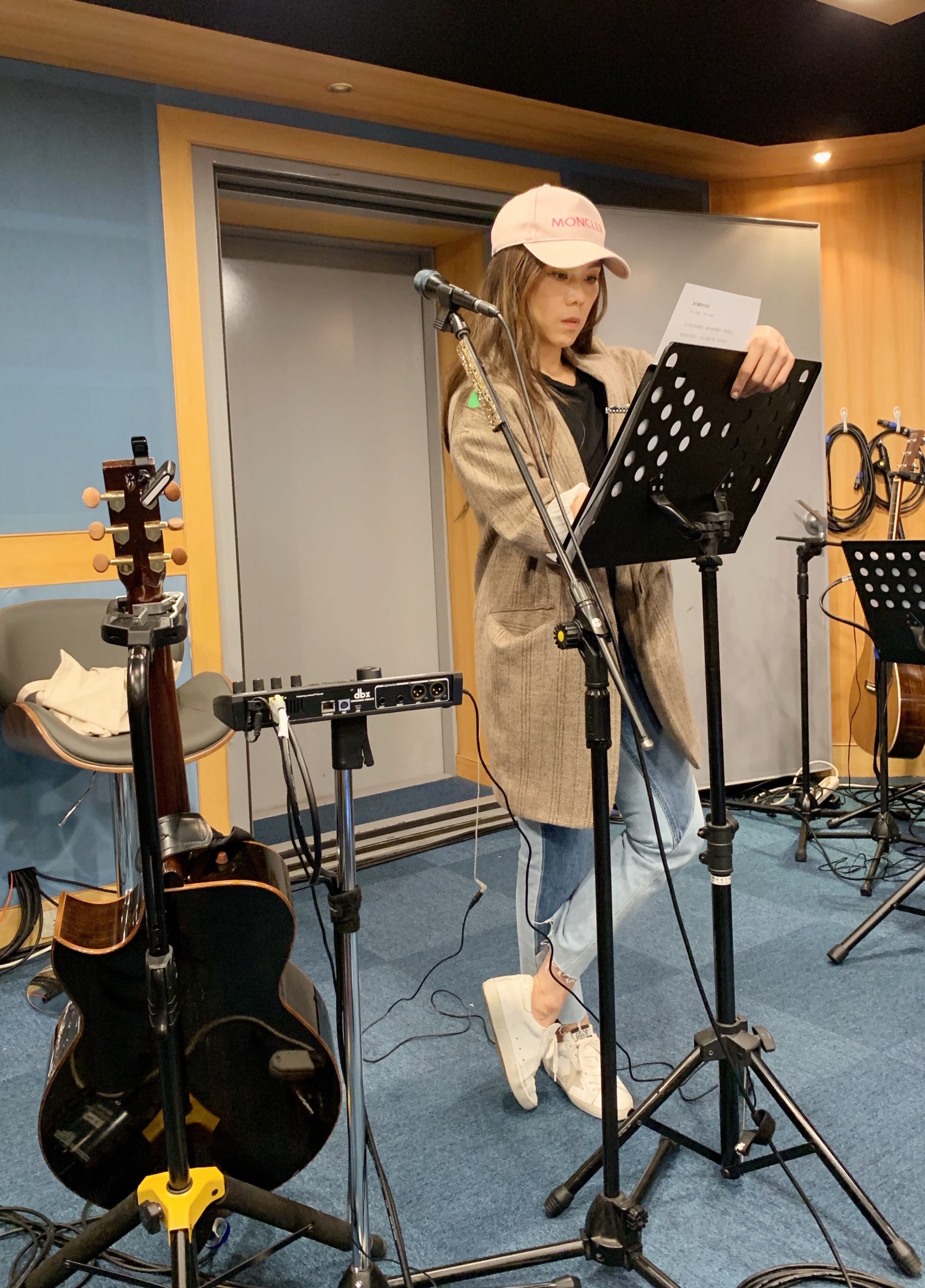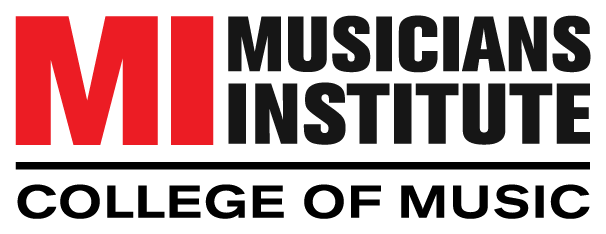Singaporean singer-songwriter, Tanya Chua, is fearless. As a young, up-and-coming musician, she chose to step outside of her comfort zone and jump headfirst into the demanding guitar program at Musicians Institute (formerly known as Guitar Institute of Technology) in Los Angeles.
With 12 Mandarin language albums and 5 English language albums under her belt, Chua has been able to maintain a career that has spanned over 20 years and has earned her countless nominations and multiple Golden Melody Awards.
Whether it’s attending music school on the other side of the world, to continually seeking inspiration to evolve her music, Chua is just one story of success that was impacted by MI’s unique curriculum and immersive classrooms. Musicians Institute is proud to have a legacy of graduates like Chua, who have used their learned tools to experience diverse music careers that take them all over the world, proving that MI grads continue to shape the global music scene.
We caught up with Chua via Zoom, where she shared stories of being a young female musician coming to study at MI, how she stays inspired, and how her experience at MI helped to shape her career and sound.

Blog Post
"*" indicates required fields
By submitting this form, I authorize Musicians Institute (MI) to make or allow the placement of calls, emails, and texts to me at the phone number that I have provided, including through the use of automated technology, or a prerecorded or artificial voice. I understand that I am not required to provide my phone number as a condition of purchasing any property, goods, or services. I agree to the terms of MI’s Privacy Policy. MI will not sell or rent your information to third parties, and you may unsubscribe at any time.
On Her Early Music Career:
“I basically just started out as a singer in a band doing covers, and we were doing a lot of Top 40s, but the fun part about my band was that I always liked to rearrange songs…I was always like, ‘Hey, can we try this? Instead of this guitar lick? Could we try it with a piano?’ I didn’t know at that time how to communicate that very well. I just knew that I wanted something different. I didn’t have any knowledge of any instrument.
It was just one day where my keyboardist said, “You know nothing about music!” That was a very big blow. It was a bit insulting but he was right–I didn’t know anything about music. The next day I just bought a guitar…I picked it up and bought some books and I started writing songs, but at the time it was very limiting because I didn’t have any music theory at all.”

On Her Decision To Enroll At MI:
“A year after, I joined MI. I think that was great, it was such an eye-opener! You throw yourself into the dark waters. I had never held an electric guitar before. Imagine being a singer, but when you join MI, you join GIT. I took a six-month course. You just go straight into the theory you go into the practical side and then you have all the workshops.
But eventually, when I came back to do my own music, all that stuff that I learned at MI was so useful because it was this common language that I could use with the musicians. Surprisingly, I thought that when I came back, like if I said something like, ‘Give me…that sharp 11’ and nobody would understand, but they understood. It really helped because I was exposed to so many grooves, so many styles, so many ways to play the guitar, in such a short amount of time.
When it comes to music, you really need to depend a lot on your guts, your gut feeling, your instincts. When you’re a musician, I think it is inherent in you. You should know how to use the information that’s given to you and make sense of it.”
On How Her Newfound Music Knowledge Impacted Her Music Right Away:
“I started out with absolutely no knowledge of music theory, but I kind of heard things. My mind just wanted to go a certain way and then when I was listening to all these wonderful popular songs, I kind of sometimes ask myself: If I were to do it, how would I do it differently? How do I execute it? The execution part was the part that I struggled for many years. It’s all about the experience and knowledge and how to execute it and to tell your musicians how you wanted [the music] to come out…
Sometimes, the more theory you know, you restrict yourself artistically. You think, ‘Oh that doesn’t go right with that,’ and ‘that chord doesn’t make sense.’ But sometimes, you just find a way to break the rules! You don’t know the rules.”
On How Her MI Classes Pushed Her:
“I enjoyed the Rhythm Section Workshop, where the guitarists and the teachers were your band. That was very intimidating. I remember one day, I was just two or three months into the course…I had to read off a chart and when it started, I faced the class and I was so scared. I looked down and I just kept playing and playing and something was wrong. [My teacher] went to my guitar, like to the volume, and said, ‘You should play it like this!’
I was so scared that I had turned myself down so low because I didn’t want to be heard but that experience stuck in my mind because when it comes to music, and expression, you cannot be scared of mistakes.
You just need to be yourself and even if I was like a beginner, I just didn’t want to embarrass myself and that’s why I kept the volume really low. But I realized you just need that extra push from the back to say that it’s fine! I don’t shred like you guys, but I’m here at GIT and I will play the electric guitar.”
How Performing at MI Gave Her Confidence:
“It made me fall in love with the stage. I think a lot of us musicians grew up falling in love with music and probably in our bedrooms, in very private little corners, and dreaming, ‘How do we actually get on stage?’ I think at MI, they just throw you there and it’s like, do whatever! Fake it ‘till you make it you know. And the whole thing about you being on stage, at first you feel so alone, and you feel very inadequate and inexperienced. [MI] gives you the guys to play with as musicians, to learn how to read from them, listen to them, to read off of each other…that whole chemistry thing. So yeah, It really benefited me in a lot of ways.”
 On Why She Chose MI:
On Why She Chose MI:
“Why? Because it’s MI! Every musician should know about MI. After I put out my first English album, my original composition album, I wanted to do it the right way. Like go learn music, go to Music School. Previous to that, I was a self-taught musician and a lot of things still didn’t make sense to me. I thought, should I go enroll to university or something like that…and I just didn’t have the time. So I thought, MI allows you to take 3 month or 6 month courses, practical courses, so you can jump straight into it can be at whatever level that you are.
I learned so much within the short span of time and I didn’t feel like I needed to if you go to university…it’s not like a huge school, but it’s enough. You have many departments, and you can go hang out with so many other musicians.”
On How MI Has Evolved To Music Production & Beyond
“I am my own engineer but when I first made my own album, I had to learn it the hard way. I didn’t know anything about the hardware. I just went in blind, like, ‘OK, that kind of sounds good!’ with just my instinct…By watching my engineers over the years and what they did on the computers, I tried to emulate what they did and try to make sense. It was a dark dark sea for me and knowing that MI now has that, it’s so important.
We’re in the digital era right now. I know a lot of things are done with software and all that and we really need a place to teach us how to make use of all these gadgets and software, and how to condense everything and make sense. I’m glad to see how MI has evolved and expanded. And that should be the way to change with the times.”
On How Being A Female Musician At MI Impacted Her:
“I think what was inspiring for me and MI, at the time, was seeing so many young [musicians] just shredding. That was the first time I witnessed that. I didn’t even know what shredding meant, and it was so impressive. They inspired me because I’m a girl and at that time in our industry when I first started out, we didn’t have many female musicians.
It was very hard because you kind of feel like you don’t really have a place in the industry…But being there at MI, I felt proud of myself. I had made it here [to GIT] and there were so few women at that time. You just have to pat yourself on the back and say that you had the guts to do it.
I definitely made full use of my time there to just look around. I think one of my best memories was walking along the corridors every day, because one room would be a private session with tutors and one would be a workshop and you hear all kinds of music. I was exposed to Jazz to Blues, to Pop, and so many things at the same time. It’s a feast for the ears. That to me, was very impactful. It inspires you.

On How She Keeps Her Career Fresh:
“You want to make every moment [of your career] your favorite. You never know when your time is up on the stage or in anything that you do for a long time, especially in music. It has such a high turnover. Every day, there’s a new musician, coming out with new music. Somebody would be the talk of the town and you never know when your time is up. as long as you enjoy it on stage and people can feel your sincerity when you make it music.
You need to find creative ways to make yourself enjoy the music. it’s impossible for you to sing the same old song the same way as the CD, and have that smile on your face. You have to find a way to fall in love with the song again and that whole part of being creative in music comes into play.”
Her Advice To MI Students & Young Musicians:
“Don’t feel content just because you have talent that’s going to put you in there for a while, but how are you going to extend yourself over this period of time? How do you survive in this industry? It’s not an easy industry. I just hope that you guys hang in there and don’t feel too comfortable, never make yourself comfortable when you’re a musician.
Always step out of your comfort zone.That’s the only thing I can say to whoever is still making music. Excite yourself! Aggravate yourself!

